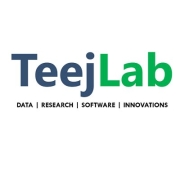API Management solutions provide a comprehensive framework for developing, publishing, maintaining, and securing APIs. These solutions help streamline the interaction between different systems, improving digital connectivity and service delivery.
API Management caters to organizations seeking enhanced control over API lifecycles. It enables the creation of scalable APIs, ensuring secure access and usage tracking. This approach facilitates collaboration, innovation, and maintenance of reliable digital ecosystems while mitigating potential security risks. The tools often include features for analytics, security, and monetization strategies, allowing businesses to drive value from their API platforms.
What are the critical features to consider?
What benefits or ROI should be evaluated?
In financial services, API Management facilitates integration with fintech platforms for seamless transactions. In healthcare, it enables interoperability between diverse health information systems, enhancing patient data exchange. Retail benefits from real-time inventory management and customer engagement through API integration with platforms.
API Management assists organizations in efficiently handling API development, deployment, and security, optimizing digital transformation efforts. It aids in creating consistent and secure digital interfaces, promoting operational efficiency, and enhancing user satisfaction through effective API utilization.
| Product | Market Share (%) |
|---|---|
| Microsoft Azure API Management | 16.5% |
| Amazon API Gateway | 12.9% |
| Apigee | 11.1% |
| Other | 59.5% |












































































With an exploding number of applications taking over the digital world, companies are turning toward API management to expose more data so that they can provide more personalized app experiences for customers, partners, and internal users. APIs are creating exponential growth for companies and are enabling them to accomplish business goals faster than ever before. API management has proven to transform organizations by increasing efficiency, fostering innovation efforts, and helping them bring new services and products to market faster.
The tool that resides between a collection of backend services and a client is known as an API management gateway. Its programming is the single-entry point for back-end APIs and both internal and external microservices. An API management gateway enforces security, provides elastic scalability and high availability, and helps performance levels. By compiling all API requests from a client, an API gateway can determine which services are necessary and combines them into a single and seamless experience for the user.
API Management solutions enhance security by providing robust tools for authentication, authorization, and encryption. They help you protect APIs from unauthorized access through API keys, OAuth tokens, and other authentication methods. You can use rate limiting and throttling to prevent abuse and overuse of your APIs. By integrating with monitoring tools, these solutions allow you to detect and respond to threats in real time.
What are the benefits of using API Management solutions for scalability?API Management solutions help you achieve scalability by balancing traffic loads and managing API calls efficiently. They enable you to optimize performance by caching responses and reducing latency, and can scale to handle increasing numbers of API requests across distributed systems. This ensures consistent availability and performance for your API consumers, even as demand grows.
How do you integrate legacy systems with modern API Management?Integrating legacy systems with modern API Management involves using API gateways and connectors to bridge the gap between old and new technologies. You can expose legacy services as APIs, providing a standardized interface for developers. This allows you to modernize your application stack without needing to overhaul existing systems completely. By doing so, you enhance interoperability and gain more value from your legacy systems.
What role does API analytics play in API Management?API analytics play a crucial role in API Management by offering insights into API usage, performance, and consumer behavior. With analytics, you can monitor real-time data, identify trends, and make informed decisions to optimize your APIs. This helps you improve user satisfaction and align API offerings with business objectives. Analytics also assist in detecting anomalies and security breaches, contributing to a more effective management strategy.
How can API Management solutions streamline development workflows?API Management solutions streamline development workflows by providing tools for API design, testing, and deployment. With features like documentation generation, mock APIs, and sandbox environments, you can accelerate the development cycle and enhance collaboration among teams. These solutions offer version control and backward compatibility, reducing the complexity of deploying updates and new features, and helping you deliver APIs more efficiently.